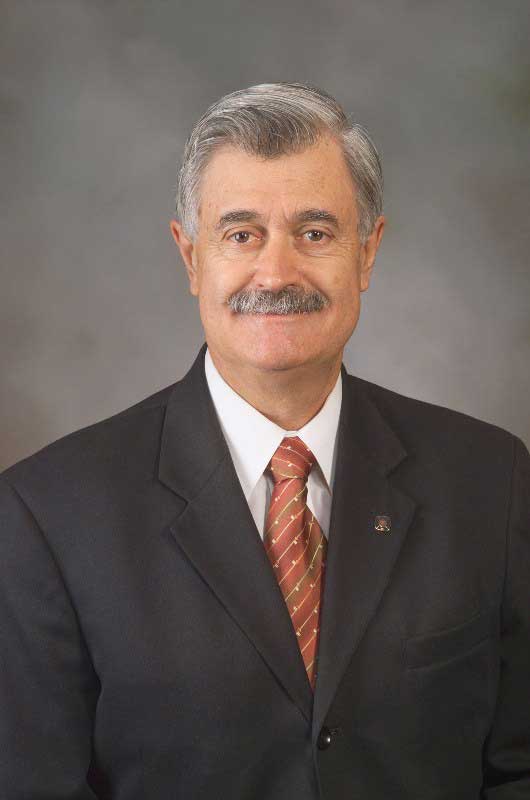Virginia Farm Bureau honors veterinary medicine's Dean Schurig

Virginia Farm Bureau President Wayne Pryor recognized Dr. Gerhardt Schurig of Blacksburg, Va., dean of the Virginia-Maryland Regional College of Veterinary Medicine at Virginia Tech, for his distinguished service to agriculture during a recent statewide conference held for county farm bureau presidents in Roanoke, Va.
Schurig was presented with a commemorative plaque following an address he shared with the group concerning the urgent shortage of food animal veterinarians in the United States.
Several recent studies have indicated that there is a critical shortage of food animal veterinarians and the situation is growing worse every year, Schurig told the group, adding that there were a variety of cultural, demographic, and economic reasons behind the shortage.
The shortage is critical because rural families and their farm animals are being under-served by the profession, and because farm animals across the country must be carefully watched for signs of naturally occurring or possibly deliberately introduced infectious diseases.
“The whole veterinary public health infrastructure is in jeopardy and the consequences for rural America are profound,” said Schurig. “Surveillance of livestock health and welfare in large parts of the country is left unaddressed.”
The percentage of exclusively large animal practices has dropped from 4.5 percent to 1.7 percent from 1990 to 2006, according to Schurig. Many veterinary students pursue companion animal veterinary practice as a result of the demise of the family farm and predominance of urban and suburban lifestyles. Rising educational debt is another issue, he said. The average educational debt for a veterinary student studying at an in-state school is $100,000; for an out-of-state student, it is $125,000.
Veterinarians working in rural practices often do not earn as much money as they do in urban and suburban practices.
Schurig detailed some of the measures that the college is taking to encourage students to consider careers in food animal medicine. For example, the college offers more than $200,000 in scholarships to encourage veterinary students to pursue careers in food animal medicine.
Schurig also underscored the need to increase the number of veterinary school graduates by increasing the instructional capacities of the nation’s 28 colleges of veterinary medicine.
The Virginia-Maryland Regional College of Veterinary Medicine is a two-state, three-campus professional school operated by the land-grant universities of Virginia Tech in Blacksburg and the University of Maryland at College Park. Its flagship facilities, based at Virginia Tech, include the Veterinary Teaching Hospital, which treats more than 40,000 animals annually. Other campuses include the Marion duPont Scott Equine Medical Center in Leesburg, Va., and the Avrum Gudelsky Veterinary Center at College Park, home of the Center for Government and Corporate Veterinary Medicine. The college annually enrolls approximately 500 Doctor of Veterinary Medicine and graduate students, is a leading biomedical and clinical research center, and provides professional continuing education services for veterinarians practicing throughout the two states. Virginia Tech, the most comprehensive university in Virginia, is dedicated to quality, innovation, and results to the commonwealth, the nation, and the world.




